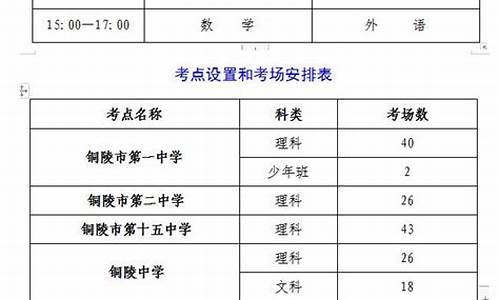您现在的位置是: 首页 > 教育资讯 教育资讯
浙江高考阅读2021_高考浙江阅读理解2017
tamoadmin 2024-05-15 人已围观
简介1.浙江高考英语阅读题附答案心疼浙江考生,“诡异的光”这个梗的意思这个梗的意思就是不是这个人或者不是这条鱼是没有办法理解她的一些意识到。其中就有一些强人所难的意味在里面,毕竟外人怎么能理解鱼的光是什么意思呢?这个梗的出处浙江高考阅读理解的一篇名为《一种美味》阅读理解也成为了大家关注的热点,文章最后结尾“从锅里跳出来的鱼眼里发出诡异的光”,最后一题也当然不负众望地恰巧问的也是“诡异的光指的是什么?”
1.浙江高考英语阅读题附答案

心疼浙江考生,“诡异的光”这个梗的意思
这个梗的意思就是不是这个人或者不是这条鱼是没有办法理解她的一些意识到。其中就有一些强人所难的意味在里面,毕竟外人怎么能理解鱼的光是什么意思呢?
这个梗的出处
浙江高考阅读理解的一篇名为《一种美味》阅读理解也成为了大家关注的热点,文章最后结尾“从锅里跳出来的鱼眼里发出诡异的光”,最后一题也当然不负众望地恰巧问的也是“诡异的光指的是什么?”,考生们也是一脸懵逼,浙江考生很生气,纷纷发微博称“正在提刀过来的路上”。而围观群众们也很能理解考生的懵逼,毕竟这道题实在让人无从下手,所以大家纷纷在网上发表对浙江考生的心疼。
心疼浙江考生,“诡异的光”这个梗的使用
1、比如对某件事情没有办法发表自己的看法,但别人又非要让你来解释,你就可以说我现在真的理解了,为什么要心疼浙江考生?因为诡异的光我也理解不了。
2、或者对某个人或某件事情实在没有办法理解的时候,也可以感叹一句,这真是诡异的光,尔等凡人是搞不清楚的。
浙江高考英语阅读题附答案
2017年浙江高考语文卷现代文阅读理解中文章尾部的一句话成了网络流行语,随后考题作者现身说法说自己也解释不了!毕竟连高考语文卷现代文原作者都不知道阅读理解的答案...于是眼里闪着一丝诡异的光表情包出炉了,转发那么多锦鲤却败给一条草鱼,以后你还敢吃鱼吗,眼里还闪着一丝诡异的光...
2017浙江高考语文卷,阅读理解题——现代文《一种美味》的作者巩高峰被扒了出来。原因是……身为作者,在标准答案公布之前,他自己都不知道自己要表达什么,更多关于这个梗的解释欢迎去老师的新浪微博围观吧!
浙江高考阅读题太难,今天人肉出原文作者。发现他自己也说,对不起 我也答不出。
望采纳
浙江高考英语阅读精选题(一)
I was due to take my driving test at 11:30 am.It was a rainy morning with low clouds and as I approached the driving school at 9:50 am,my heart sank.My driving instructor. Stan,said something,trying to drive away my fears,but I was not impressed
We set off for the test centre with an hour to go I wanted a run round the test circuit (圈),but we got stuck in a traffic jam,and could only drive no faster than walking.
We arrived at the test centre at 11 am.Stan made me watch a group of six learners emerging from the building with their respective(各自的)examiners.Their instructors were looking out from two windows.We watched them drive off They must have been feeling very nervous
Stan took me round the probable test track,pointing out the traps.The weather became even worse It seemed to make me feel worse too.I had developed a couldn't-care-less mood,and was almost calm We returned to the test centre in time to see the six unfortunates returning.Their nerves must have been in a terrible state.
I sat in the waiting room until six examiners came in to call out our respective names. Mine showed no emotion as he asked me to go to my car I showed none either,but the tension began mounting again.
1.On their way to the test center,Stan tried to comfort the author_________
A.but it made the author's heart sink deeper
B.but the words produced no effect
C.so that the author could drive to the center with no fears
D.so that they could prepare for all he flaps
2.Which of the following is TRUE according to the passage?
A.Six learners would be tested at the same time.
B.The learners were tested in the presence of their instructors
C.None of the six learners passed the test in the end.
D The instructors were as nervous as the learners
3.When the author was sitting in the waiting room,he was quite_________
A.upset B.nervous C.frightened D.relaxed
4.When it was his turn to take the test,the author went to his car with___________
A.firm confidence B mixed emotions C.increased nervousness D.perfect calmness
5.The passage is mainly about___________
A.the influence of bad weather upon a test taker
B the feelings of a learner before his driving test
C the preparations before a driving test
D.an unforgettable day
浙江高考英语阅读精选题答案
1.B
2.A
3.D
4.C
5.B
浙江高考英语阅读精选题(二)The evidence for harmony may not be obvious in some families. But it seems that four out of five young people now get on with their parents, which is the opposite of the popularly-held image(形象)of unhappy teenagers locked in their room after endless family quarrels.
An important new study into teenage attitudes surprisingly shows that their family life is more harmonious than it has ever been in the past."We were surprised by just how positive today's young people seem to be about their families," said one member of the research team. "They're expected to be rebellious(叛逆的)and selfish, but actually they have other things on their minds: they want a car and material goods, and they worry about whether school is serving them well. There's more negotiation(商议)and discussion between parents and children, and children expect to take part in the family decision-making process. They don't want to rock the boat."
So it seems that this generation of parents is much more likely than parents of 30 years ago to treat their children as friends."My parents are happy to discuss things with me and willing to listen to me," says 17-year-old Daniel Lazall. "I always tell them when I'm going out clubbing. As long as they know what I'm doing, they're fine with it." Susan Crome, who is now 21, agrees. "Looking back on the last 10 years, there was a lot of what you could call negotiation. For example, as long as I'd done all my homework, I could go out on a Saturday night. But I think my grandparents were a lot stricter with my parents than that."
Maybe this positive view of family life should not be unexpected. It is possible that the idea of teenage rebellion is not rooted in real facts. A researcher comments,"Our surprise that teenagers say they get along well with their parents comes because of a brief period in our social history when teenagers were regarded as different beings. But that idea of rebelling and breaking away from their parents really only happened during that one time in the 1960s when everyone rebelled. The normal situation throughout history has been a smooth change from helping out with the family business to taking it over."
1.What is the popular image of teenagers today?
A.They worry about school.
B.They dislike living with their parents.
C.They have to be locked in to avoid troubles.
D.They quarrel a lot with other family members.
2.The study shows that teenagers don't want to__________ .
A.share family responsibility
B.cause trouble in their families
C.go boating with their family
D.make family decisions
3.Compared with parents of 30 years ago, today's parents__________ .
A.go to clubs more often with their children
B.are much stricter with their children
C.care less about their children's life
D.give their children more freedom
4.According to the author, teenage rebellion__________ .
A.may be a false belief
B.is common nowadays
C.existed only in the 1960s
D.resulted from changes in families
5.What is the passage mainly about?
A.Negotiation in family.
B.Education in family.
C.Harmony in family.
D.Teenage trouble in family.
浙江高考英语阅读精选题答案
1.D
2.B
3.D
4.A
5.C









